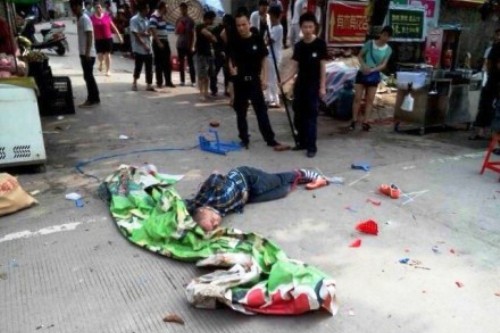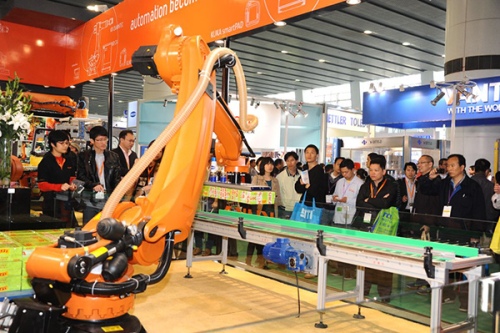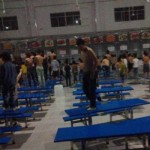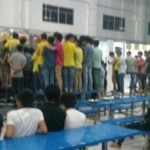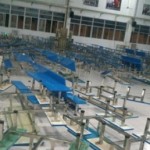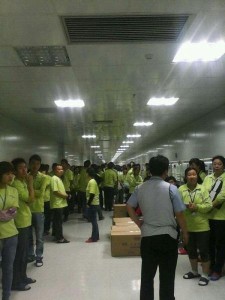 Guangdong labor conditions look to become more complicated and unpredictable just as the province looks to welcome some 13 million migrant workers as new residents within six to seven years.
Guangdong labor conditions look to become more complicated and unpredictable just as the province looks to welcome some 13 million migrant workers as new residents within six to seven years.
Labor unrest in Guangdong has been growing this year due to a slowing economy and rising costs, reports Reuters. According to China Labor Bulletin, there have been 319 strikes throughout China this year, with approximately 100 occurring in Guangdong alone.
Wages and Benefits Key Sticking Points
Apparently the Yue Yuan strike, which saw 30,000 workers walk off the job earlier this year, was actually started inadvertently by a manager at the company.
READ: 30,000 Workers Strike in Dongguan, Robots Planned As Replacements
According to the account compiled by a labor group, a manager first notified employees about the paltry amount the company was making to staff social welfare.
Even though some companies like Timberland and Nike tried to distance themselves from the strike, Adidas was proactive in campaigning for the release of two workers that had been detained for protesting at the factory.
READ: Shenzhen Firm Continues Trend of Replacing Human Labor with Robots
In a statement to the Guardian, Adidas said, ”With respect to the arrest of two workers’ representatives, Mr Zhang and Mr Lin, we were engaged with several labor rights groups in Southern China, to try to determine where they were being detained and offered our support to secure their release. We also wrote to the Dongguan mayoral office, calling for his immediate release.”
Things are getting better on the salary front, however. The manufacturing sector saw wages rise by more than 16% in the first nine months of 2013, according to Datastream.
RELATED: Labor Unrest Grows in Guangdong with
Two More High-Profile Protests
Labor Activists Released
Furthermore, the province has recently seen the release of two high-profile labor activists. Meng Han was recently released after serving nine months in jail. Meng had been accused of “assembling a crowd to disrupt public order” during a rooftop protest in August 2013 at the Guangzhou Chinese Medicine University Auxiliary Hospital. Meng and 11 other security guards had been protesting their employment contracts and and their social insurance benefits.
Meanwhile in Shenzhen, charges of “gathering a crowd and disturbing the order of public transportation” have been dropped against Wu Guijun for his part in a protest at Diweixin.
Taxi Drivers Barred From Forming Unions
However, any labor reform in Guangdong probably won’t mean taxi drivers can form their own unions. Drivers in Dongguan, in particular, lament the state of their industry but aren’t in any position to make changes through group organization.
Dongguan taxi drivers have been hit hard by the prostitution crackdown, and have long been suffering from an industry where they are forced to pay kickbacks called “tea money“. The plight of the Dongguan taxi drivers gained prominence when a driver died after working a 24-hour shift. And yet, these labor conditions are accepted as something that can not be changed.
Taxi driver Mr Li, 41, confirms the bad working conditions. He said, “During a bad day, you have no choice but to just sit in the cab the whole 12 hours. If you don’t work, you still have to pay the company. And the tea money is always like a monkey on your back. Everyone wants to earn it back as soon as possible.”
But Li admits the working conditions aren’t liable to change soon. “There is something fundamentally wrong with this job but we are not organised and don’t know how to join forces,” Li said. “That is why we don’t have a say in our pay and working conditions.”
“We are like a heap of loose sand here, there is little solidarity,” he added.
READ: Guangdong Hukou Reform to Populate Rural Cities With Migrants
The Days of Manual Labor Are Numbered
It may get worse for some factory workers in Guangdong. The high cost of manufacturing has led some companies to start using robots as an alternative to using human labor.
Perhaps signifying a growing trend, the Shenzhen Robotics Association said the annual output of the robotics industry in Shenzhen had exceeded its initial goal of RMB 20 billion last year. Foxconn is currently using approximately 10,000 robots in its Shenzhen factories, and it plans to expand to a million robots within three years. Another Shenzhen company, Rapoo Technology, incorporated 75 robots into its production line in 2011, and has been able to cut 2,200 staff.
Guangzhou plans to have 80% of all of its manufacturing production performed by robots by 2020.
In light of these many developments, we would guess that the only safe job these days is building robots. Guangzhou is leading the way, proposing to construct two or three robot industrial development zones that will produce 100,000 robots a year by 2020.
Related:
Photo: sfgate
 The head of Taiwanese manufacturing giant Foxconn has come out to say a spate of suicides over the years at the factories in China are not related to poor labor conditions.
The head of Taiwanese manufacturing giant Foxconn has come out to say a spate of suicides over the years at the factories in China are not related to poor labor conditions.


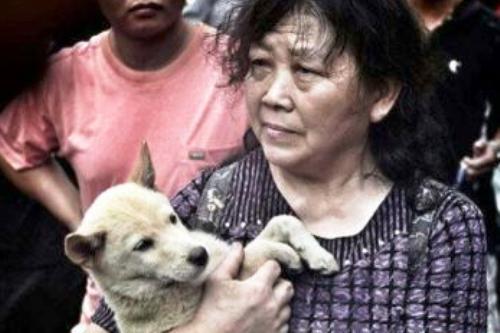
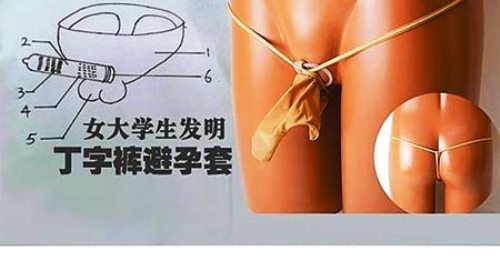
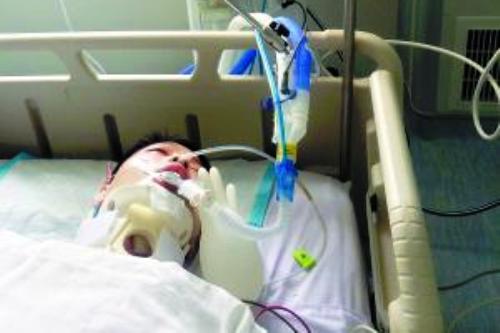

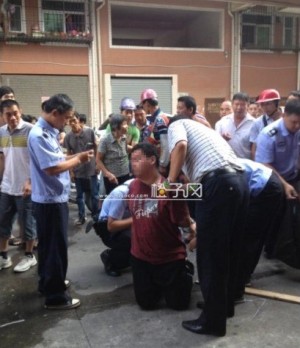




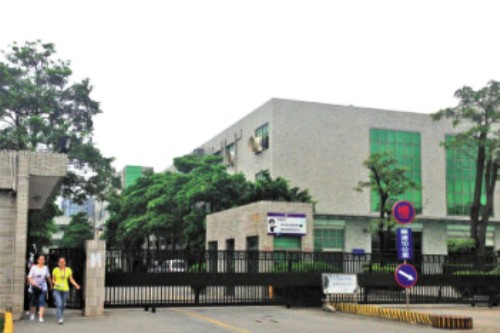
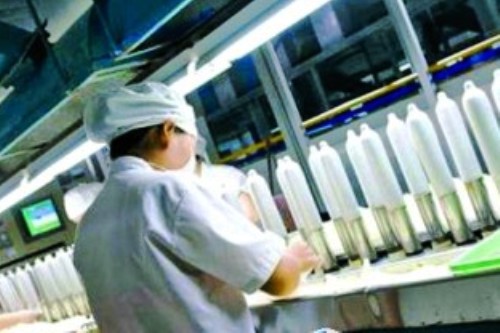
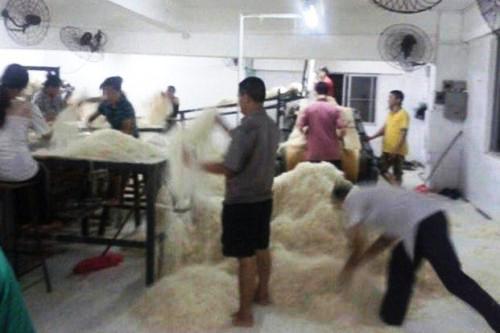
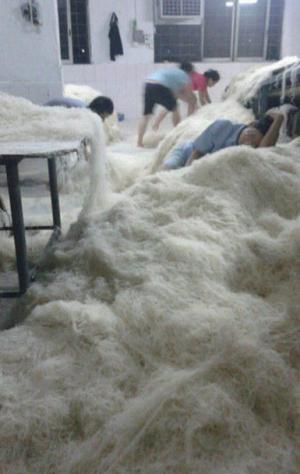
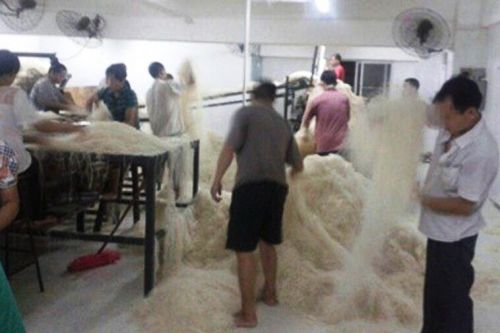

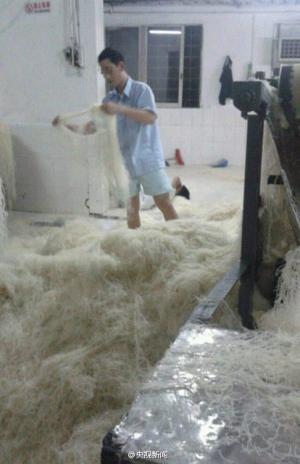
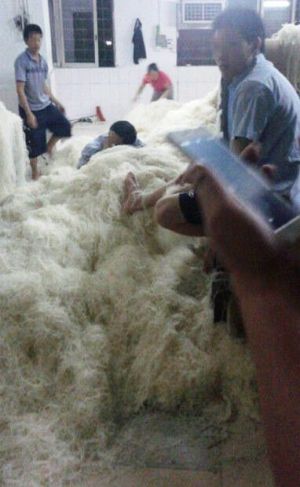 Related:
Related:



